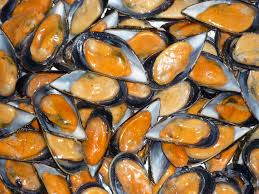(Something may be lost in translation)
Why did Croatian government services responsible for food control did not inform consumers that chicken fillets imported from Poland had salmonella in them before the European website RASFF announced on 11 November that chicken fillets that were on the Croatian market were infected with salmonella, reports Jutarnji List on November 16, 2016.
 According to the notice on the website, it is apparent that the laboratory analysis was conducted 20 days earlier, on 21 October. So, the obvious question is why was the finding sent 20 days later and why Croatian consumers were not informed about it.
According to the notice on the website, it is apparent that the laboratory analysis was conducted 20 days earlier, on 21 October. So, the obvious question is why was the finding sent 20 days later and why Croatian consumers were not informed about it.
The explanation was given by the Agriculture Ministry, which is responsible for informing citizens about possible withdrawal of food from the market. They said that Croatia, which is a member of the RASFF system, submitted information that one retailer conducted analysis of chicken from Poland (on 21 October) and that the presence of salmonella was found. “Even before obtaining laboratory reports, the meat was past its expiry date and therefore was no longer present in the market. That is the reason why the information in the RASFF system is classified only as a “notice of information”, and not as an “alert”. So, this chicken is no longer on the market in Croatia”, according to the Ministry.
However, while the reply states that the public was not informed because at the time when the report was finished the expiry date had already passed, it seems that the chicken was on the market while waiting for the findings, which realistically means that today someone might have in their freezer contaminated chicken which was bought in October.
It is interesting that the analysis which led to the discovery of salmonella in the chicken took place in the midst of another scandal with salmonella in eggs imported also from Poland. It is therefore worrying that this information was not officially released by the Agriculture Ministry.
It has been just over a month since a boy from Bregana, Mirko Vidović, died after eating eggs that have been infected with salmonella. Although the autopsy process has still not been completed, so the exact cause of death is not known, it is known that the eggs he ate were infested with salmonella. The eggs were withdrawn from the shops. Immediately after the Croatian case was reported to RASFF, it was discovered that several other similar cases were reported in the EU, all connected to a facility in Poland. At the time, as many as 12 other European countries reported salmonella cases as well.


